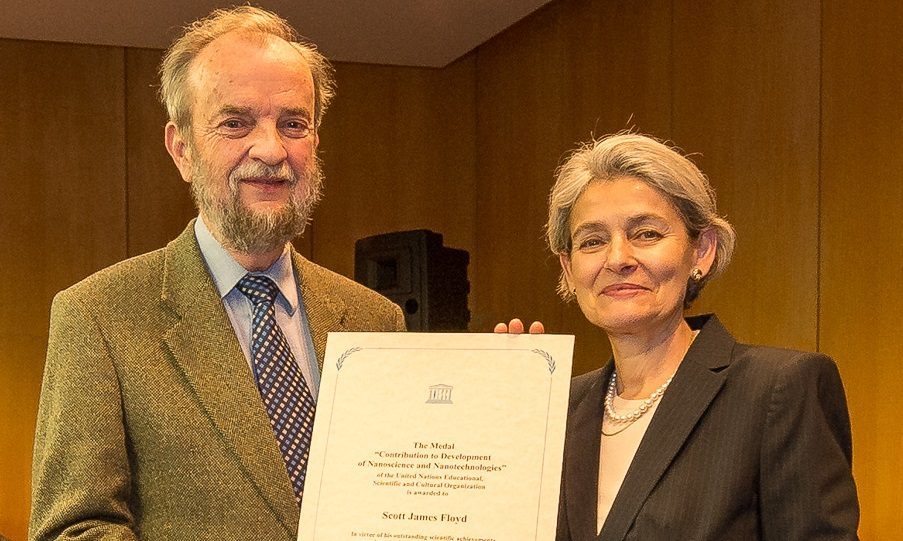A St Andrews professor who designed the nano-memories for a £100 million industry revealed he earns zero royalties.
Professor Jim Scott spent 30 years developing the memories which are used in millions of e-money smartcards around the world.
But because his patents have expired he is entitled to none of the profits from his work’s use in products in Japan and Korea including computer memories and subway fare cards like London’s Oyster.
Mr Scott revealed the situation was awarded the UNESCO medal for contributions to nanoscience and nanotechnology in honour of his pioneering research on ferroelectric materials and devices.
He designed the nano-memories over 30 years ago in a Colorado lab with no funding.
After being presented with his medal at UNESCO’s Paris headquarters, he said: “I am very grateful for this recognition.
“This work began in 1984 and has taken more than 30 years; it is not like winning the lottery.
“Instead it represents working weekends for several decades with the tolerance of a very patient wife.
“The project was unusual because it started in a university lab with no funding — one professor, one very young assistant professor, and only two students.
“It went all the way to £100 million a year in devices being produced commercially, but I get zero royalties, since my patents have all expired.”
UNESCO’s prize for nano-science recognises that making electronics smaller allows less power to be used, reducing environmental pollution and carbon emissions.
Mr Scott joined the University of St Andrews last year after 16 years at the University of Cambridge.
His 1989 paper about ferroelectric memories is thought to be the most cited in electronic ceramics and in 2014 he won the Thomson-Reuters Citation Laureate prize, regarded as a predictor of the Nobel Prize in physics.
The New Jersey-born scientist began his ground-breaking research while at the University of Colorado.
He said: “I continue this line of research at St Andrews and hope that some of our newer developments will find their way into commercial devices as well; but to be honest, I do this work because of intellectual curiosity — because it’s fun.
“Scientists are among the lucky few in life, like actors or professional athletes, who get paid for pursuing their hobbies.”










